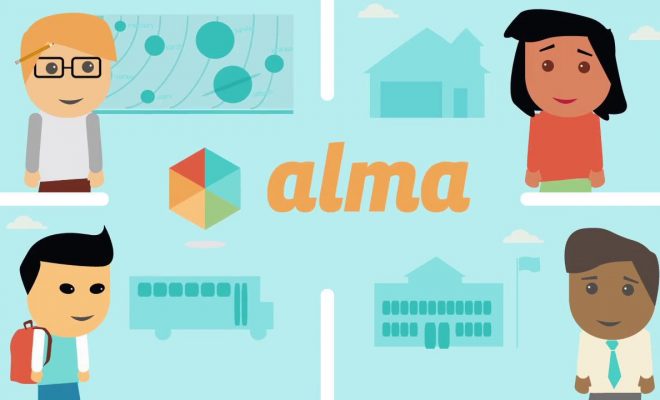Are parents missing from schools or are they being pushed out?

**The Edvocate is pleased to publish guest posts as way to fuel important conversations surrounding P-20 education in America. The opinions contained within guest posts are those of the authors and do not necessarily reflect the official opinion of The Edvocate or Dr. Matthew Lynch.**
A guest column by Regina Paul
Dr. Matthew Lynch’s “Parents: The Missing Ingredient in K–12 Success” in the September 24 issue of The Edvocate is insightful as far as it goes, though that is not far enough. Dr. Lynch writes, “As K-12 academic standards become more rigorous, parents are becoming an even more integral piece of a student’s success.” Yes, most of us policymakers and advocates would agree that parents should understand what their children are expected to learn in school and should be engaged in helping them learn it. That goes for parents with college educations, parents with high school educations, and parents with grade school educations. That goes for parents with great jobs, parents with not-great jobs, and parents with no jobs. In fact, as we prove time and again, all parents can help teach their children.
Some three decades ago when the Cleveland Public Schools were the subject of a long Court-ordered desegregation case, we worked on behalf of the Federal District Court to establish new reading curriculum objectives for grades 1 through 9 and to develop new districtwide tests to see whether children were learning the new objectives. It sounds so old-fashioned now, but it worked. Reading improved, but not just because of what teachers did in the classroom.
Reading improved because we sent the new reading objectives home to every family of every child in those nine grades—the actual objectives that teachers taught every day. On the back of the Reading Skills Checklist (there was one for each grade), we had an important tagline—Remember: The schools cannot do it all alone. We followed up the parent checklists with Reading at Home: A Parent’s Guide to Helping Children Read (there was one for each grade), which explained each objective, gave some easy-to-do activities for parents to use to teach it, and gave a sample test question from the districtwide test. We sent a parent handbook to every family of every child in those nine grades.
Many people told us that parents in Cleveland were way too busy to help their children learn to read. Many people told us that parents in Cleveland wouldn’t be able to help their children learn to read even if they wanted to. Many people were wrong on both counts.
When we did the same thing a few years later in the Savannah-Chatham County Public Schools—this time with parent checklists and parent handbooks for language arts, mathematics, science, social studies, and health objectives for each marking period—we got the same pushback. People told us that the parents who still had children in the public schools after desegregation were just not able to do what we imagined. They told us we were wasting the district’s money. They were wrong again.
When the school district was late sending out Savannah’s parent checklists at the beginning of the next school year, the principals said their phones were ringing off the hook, with parents calling to say, “Where is my checklist? How do you expect me to help my child this year when you haven’t sent me my checklist?” Standardized test scores improved so much that the testing company rescored the tests; gains like that were never seen, the testing company said.
So, I know that parents can make a big difference—maybe all the difference. But here is a problem I have run into in some of the hundred school districts I have worked with: Some schools and school districts are staffed with professionals who would rather that parents just stayed out of the way. They are willing for parents to come to back-to-school night in the fall, to take part in fundraisers, to sign homework before it is turned in or tests after they are graded, and to attend twice-yearly parent-teacher conferences. But are they willing to give parents any power, any say about how things are done?
Are they willing to let parents have a voice in the curriculum, for example? Not long ago, I attended a statewide PTA convention. The Common Core and its matching statewide tests were all most people were talking about. Yet, there was not one workshop session about the Common Core, the tests, or any curriculum topic. The sessions were about how to get more PTA members, how to conduct meetings, and how to raise money—all useful topics, but far less important than what kids are being taught. The exhibit hall was full of parents with misinformation about the Common Core and the tests being used to measure them, but there was not a workshop to be found. Who was benefitting from the parents’ confusion?
My question is this: Are the parents missing or are they being pushed out? Do they even realize that they are often being held at arm’s length? Could they do more if they were invited in? Would schools be better if parents had a real voice in more school decisions, if they wielded real power and not just a rubber stamp?
One clear path to increased parent power is for parents to run for local school boards. As someone who has worked with and trained literally thousands of school board members nationwide, I can honestly say that I think there is no nobler calling. I continue to be amazed at how smart and perceptive most school boards are when their members are working together to improve schools. Parents, if you haven’t attended a school board meeting lately—or ever—it is time. Watch the way the board handles its power.
And when you go, ask the board to discuss its policies on parent involvement. Look at how parents in your school district are encouraged and expected to engage with teachers and administrators. Are there structures in place that put any power in the hands of parents and that give parents a real voice in important decisions? If there are policies that call for real engagement, then you are lucky. Make sure you take advantage of them—in the best possible way.
________________
Regina H. Paul is president of Policy Studies in Education (PSE), a nonprofit organization with more than 40 years of experience in working with schools, local and state boards of education, state and federal education agencies, foundations, professional associations, and colleges to improve education. Ms. Paul is the co-host of NYCollegeChat, a weekly podcast for parents about negotiating the world of college, and the co-author of a new book, How To Find the Right College: A Workbook for Parents of High School Students. She blogs regularly at ParentChatwithRegina.org.




